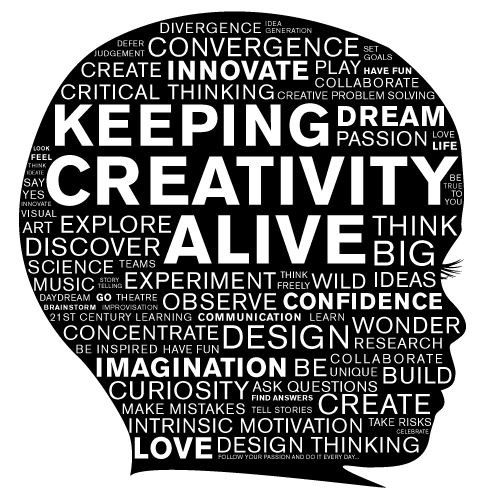 In last week’s inspirational people series post I discussed the life and times of bipolar sufferer Stephen Fry. Despite suffering a condition that naturally affects happiness levels, Stephen Fry has come away from 2013 as one of the most influential faces of television. And that’s because he had a dream.
In last week’s inspirational people series post I discussed the life and times of bipolar sufferer Stephen Fry. Despite suffering a condition that naturally affects happiness levels, Stephen Fry has come away from 2013 as one of the most influential faces of television. And that’s because he had a dream.
We all know that success can give us happiness because the rewards of success are money, fulfilment and a purpose outside of an average concrete life. But did you know that happiness can also make us more successful?
What is Happiness?
 Happiness is a subjective term used to describe those annoying people who giggle when they get caught in the rain or always have an answer to the problems at hand right? Wrong. Anyone can be that annoying person. Happiness isn’t about having a big smile on your face; it’s about feeling like your have a purpose, feeling valued and accepting who we are, who we used to be and who we want to be in the future.
Happiness is a subjective term used to describe those annoying people who giggle when they get caught in the rain or always have an answer to the problems at hand right? Wrong. Anyone can be that annoying person. Happiness isn’t about having a big smile on your face; it’s about feeling like your have a purpose, feeling valued and accepting who we are, who we used to be and who we want to be in the future.
Everyone has a different idea about what happiness means and how to get it. But something that everyone will agree on is that happiness is important and one of the greatest motivation methods out there.
Ten Ways You Can Become a Happier Person…
1) Follow Your Life Purpose & Do What You’re Good At Doing…
This is the most obvious point I have to offer, but I offer it still because so many aspiring writers, artists and businessmen remain behind the supermarket conveyer belts.
Sure, talent won’t pay the bills, but paying the bills won’t make you happy or take you any step closer to getting out of the situation. You may be busy. You may be tired. You may be waiting on the day when you have less to do. But these are not excuses.
J.K Rowling, Andy Warhol and Stephen Fry were just as busy and tired. But if you want to be happy and you want to make the most of what skills you have, you have to listen to yourself and get out of the dreaming stage.
Dreaming is what makes you, you. But dreams are worthless if you only take them to your grave.
2) Focus On The ‘Here’ & ‘Now’…
Worrying about ‘what if’ is a waste of time, and that’s not good for the self-developer because time is the self-developer’s greatest currency. And when it’s gone, it’s gone. So instead of thinking about the issues that are out of your control, think about the issues that aren’t and what you can do now to face the problems at hand.
3) Look After Your Basic Needs…

Hunger, sleep deprivation and lack of exercise are scientifically proven to increase depression and the inability to recall good memories. But how do you find time to eat and sleep and run when you’re trying to live out your life purpose? Easy… make time.
All these issues can be easily solved by just taking a short nap or the train, waking up ten minutes earlier to meditate or going to bed instead of tracking through Facebook or the news. But although they are easy to resolve, they’re important to consider because it’s impossible to aim high if our bodies aren’t ready to go through with it.
4) Set Appropriate Targets…
If a target this is out of reach, things can go one of two ways. The first is failure. The second is a sleepless night. And neither will make you feel very valued, or happy. But similarly a target that is too within reach will leave you feeling unsatisfied or bored by your work (see point 1) therefore it’s important that you set goals that are balance of both. When setting goals, consider. Is this achievable? Am I pushing myself?
5) Be Flexible…
If you have a lot to do, make a list. But always tick of these things one at a time to keep your mind and the path ahead of you clear and easy to follow. Organisation and prioritization are vital for our stress levels, but don’t be so specific that you’re thrown off balance if a new opportunity comes your way.
Make lists to your hearts content. Get yourself a folder, post-its and an organizer if you wish. But never put timings on your to-do list. And always allow time between tasks just in case one runs over for example.
6) Achieve Work-Life Balance…
 Money can’t buy you happiness, and money can’t buy you friends and family either. You may be a bit of a hermit, but social interaction is one of the best ways that you can feel loved and valued.
Money can’t buy you happiness, and money can’t buy you friends and family either. You may be a bit of a hermit, but social interaction is one of the best ways that you can feel loved and valued.
You don’t need to spend all your time with people, but making the most of the time that you do have is a great way to release endorphins.
If you’re a busy person; prioritize the relationships that matter the most to you. If you’re an anti-social person; doing a charitable deed, listening to music or even just watching your favourite film can help bring rest and relaxation to the mind.
The best way to achieve happiness is through work-life balance and the best way to achieve work-life balance is to ensure that you have equal time for your future (career/project), your present (yourself) and you’re past (friends and family).
Too much of either of these isn’t good for happiness levels and never will be. So always keep this balance monitored and in check.
7) Express Yourself Before Bed…
A great way to increase your happiness is to resolve the issues you have. And a great way to do this is to write down all your negative emotions before bed.
That way nobody gets offended by the things you say, but the next day you can put your troubles behind you and focus on creating a resolution.
Chances are you ‘feelings’ from the night before will seem that much more distant and silly in the morning and you may even come to this resolution in the things you dream about. Additionally a good way to counter-balance all that anger is to count your blessings in the morning.
Make a short list of what you’re thankful for, what you’re looking forward to and what’s special about the person you are.
As I say with everything to do with self-psychology, balance in the key so ensure that you’re expressing in a controlled way that will bring you closer to your happy state of living.
8) Fake It Until You Feel It…
Smiling, laughing and de-cluttering your work area is a great way to fake organisation and happiness. But an even better was to ‘fake it’ is not to nag. Sounds easier said than done? Not necessarily!
If you need something to be done either do it yourself (what gives you the right to nag eh?) or consciously limit your instructions to a single word. If you really want to go to town on it, try silent hints or nudges in the right direction.
Remember: happiness is not a result… it is in your control. And the smallest of changes can make a really big difference.
9) Don’t Treat Failures…
 If you’ve had a bad day, don’t resolve that bad day with ice cream or a new guitar; try to resolve that issue with longer lasting effects such as a strategy plan of action.
If you’ve had a bad day, don’t resolve that bad day with ice cream or a new guitar; try to resolve that issue with longer lasting effects such as a strategy plan of action.
Unfulfilled people will find good things and keep on searching. Examining every, single, option available to them.
Fulfilled people, satisfiers, will accept good things when they meet the required qualities. Even if you’re not fulfilled, or even close to being so, thinking like someone who is will really help with the whole ‘faking it’ technique.
10) Realise That Things Aren’t Always Your Fault…
Life is life and things go wrong. Illness. Failure. Your car breaking down. We can prevent them to a certain extent – and I’m all for taking responsibility for the things we can control – but sometimes things just happen and we have to accept them.
Maybe you could have prevented it, maybe you could have done this better but it’s too late now. Move on from your mistakes. Learn from what caused them. And realise that sometimes life throws at us, what it throws at us.
We are not defined by our mistakes. We are defined by how we deal with those mistakes. And that’s the biggest lesson we can learn as deep thinkers.
Wrote by Aimee Hall - Follow us - Comment Below!





